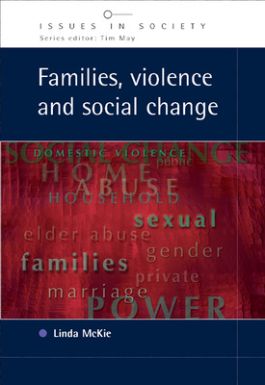Families, Violence and Social Change
- Access the eBook anytime, anywhere: online or offline
- Create notes, flashcards and make annotations while you study
- Full searchable content: quickly find the answers you are looking for
Acknowledgements
Introduction
Part one: Families, violence and society
Your family, my family, their family
Identifying and explaining violence in families
Families: Fusion and fission
Part two: Gender, age and violence
Embodiment, gender and violence
The ambiguities of elder abuse: Older women and domestic violence
Part three: Towards a critical theory
Unpalatable truths: Recognizing and challenging myths
A critical social theory of families, violence and social change
References
Index.
Kevät Nousiainen, University of Helsinki, Johanna Niemi-Kiesiläinen, University of Umeå and Anu Pylkkänen, University of Helsinki.
“This excellent book offers a timely intervention into debates about violence. Whilst most debates still focus on the spectacular rather than mundane forms of violence, Linda McKie uses a synthesis of legal, sociological and feminist research to show how current debates fail to deal with the violence that underpins our lives.”
Prof Beverley Skeggs, University of London.
An exciting new addition to the series, this book tackles assumptions surrounding the family as a changing institution and supposed haven from the public sphere of life. It considers families and social change in terms of concepts of power, inequality, gender, generations, sexuality and ethnicity. Some commentators suggest the family is threatened by increasing economic and social uncertainties and an enhanced focus upon the individual. This book provides a resume of these debates, as well as a critical review of the theories of family and social change:
- Charts social and economic changes and their impact on the family
- Considers the prevalence and nature of abuse within families
- Explores the relationship between social theory, families and changing issues in familial relationships
- Develops a theory of social change and families through a critical and pragmatic stance

